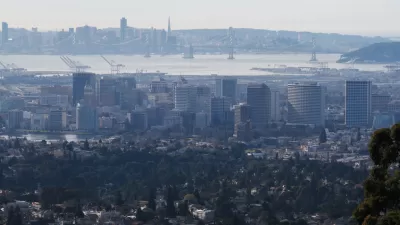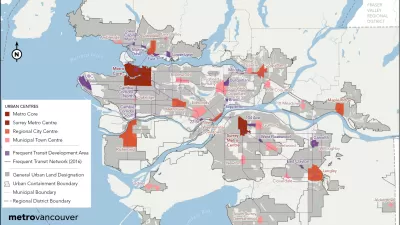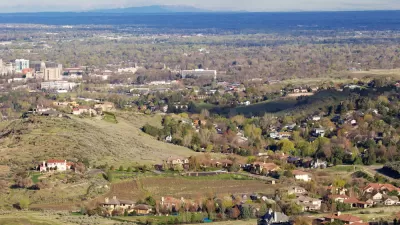Some people like to leave their work at the office. But maybe you're the kind of planner who likes to turn the largest challenges of the profession into a game to be enjoyed in your free time.

Mary Jo Bowling shares news of a Kicktarter campaign to back a new game called Bay Area Regional Planner.
According to Bowling, the game, "promises fun while players navigate the very real-world problems of where to build housing, how to lower rents, keeping commutes manageable, and preserving open space." Plus, adds Bowling, "the trickiest part of the game is this: Players have to agree on policies. As the Kickstarter pitch cheerily states: '...Get ready to compromise and make coalitions!'"
That spirit of collaboration is also built on the lessons offered by the game—i.e., that the challenges of the planning, especially in high-demand areas like the Bay Area, are not east to solve.
The game was designed by Alfred Twu, a Berkeley resident who also designed games called California Water Crisis and US High Speed Rail Game. The game already has 18 backers and has more than doubled its modest goal to collect $500. A $40 pledge buys a copy of the game.
FULL STORY: New Game Puts the Bay Area Housing Crisis in Your Hands

Manufactured Crisis: Losing the Nation’s Largest Source of Unsubsidized Affordable Housing
Manufactured housing communities have long been an affordable housing option for millions of people living in the U.S., but that affordability is disappearing rapidly. How did we get here?

Americans May Be Stuck — But Why?
Americans are moving a lot less than they once did, and that is a problem. While Yoni Applebaum, in his highly-publicized article Stuck, gets the reasons badly wrong, it's still important to ask: why are we moving so much less than before?

Using Old Oil and Gas Wells for Green Energy Storage
Penn State researchers have found that repurposing abandoned oil and gas wells for geothermal-assisted compressed-air energy storage can boost efficiency, reduce environmental risks, and support clean energy and job transitions.

Greening Oakland’s School Grounds
With help from community partners like the Trust for Public Land, Oakland Unified School District is turning barren, asphalt-covered schoolyards into vibrant, green spaces that support outdoor learning, play, and student well-being.

California Governor Suspends CEQA Reviews for Utilities in Fire Areas
Utility restoration efforts in areas affected by the January wildfires in Los Angeles will be exempt from environmental regulations to speed up the rebuilding of essential infrastructure.

Native American Communities Prepare to Lead on Environmental Stewardship
In the face of federal threats to public lands and conservation efforts, indigenous groups continue to model nature-centered conservation efforts.
Urban Design for Planners 1: Software Tools
This six-course series explores essential urban design concepts using open source software and equips planners with the tools they need to participate fully in the urban design process.
Planning for Universal Design
Learn the tools for implementing Universal Design in planning regulations.
Heyer Gruel & Associates PA
City of Moreno Valley
Institute for Housing and Urban Development Studies (IHS)
City of Grandview
Harvard GSD Executive Education
Salt Lake City
NYU Wagner Graduate School of Public Service
City of Cambridge, Maryland





























